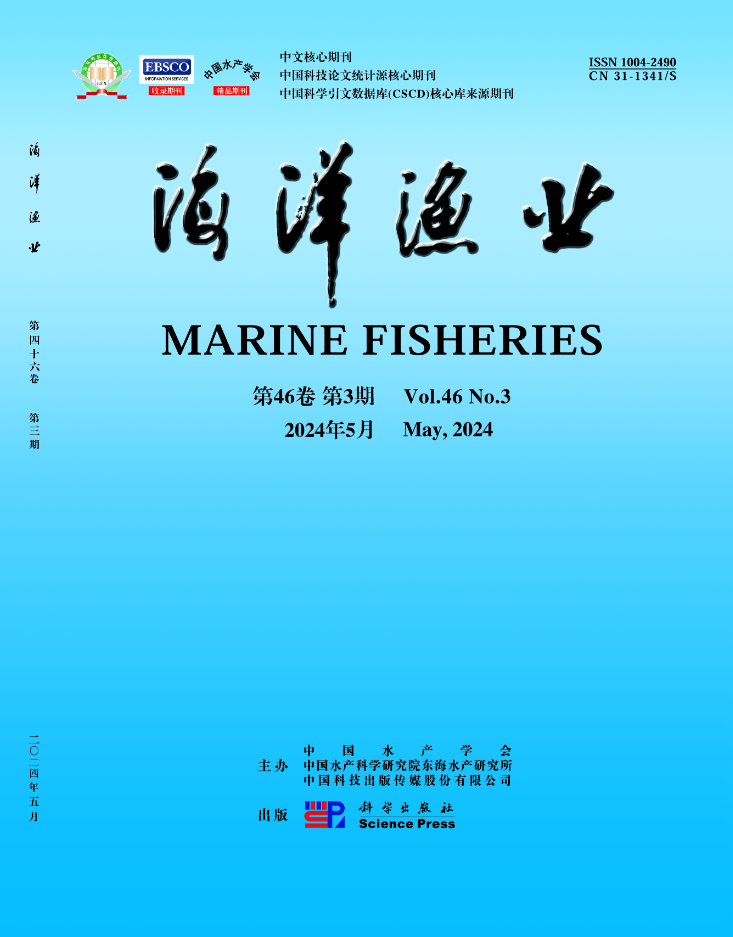rajtunus pelagicus根据邻近岛屿捕获的环境参数进行了空间分析
引用次数: 0
摘要
澜沧岛海域的蓝蟹已被过度捕捞。因此,主要的挑战是以适当的方式管理其利用。本研究的目的是探索适合蓝蟹捕捞的水体特征。因此,可以对澜沧江岛周边海域的潜在渔场进行空间测绘,作为物种保护的初步努力。利用地理空间分析方法对现有生境的物理参数进行评价。结果表明,MPT、TDS、亮度、磷酸盐、硝酸盐、深度和底物类型等参数都非常适合蓝泳蟹的生长。盐度、DO、温度等参数质量较差,表明生境不适宜。然而,加权和重新分类的结果表明,澜沧岛水域是蓝泳蟹的良好栖息地。渔获数据显示,40%的蓝泳蟹甲壳较小(7-11.83厘米),属体型过小,是法例所禁止的。此外,约68%的渔获量相当轻(30-147克),雌雄性别比为1:2。约35%的雌蚊携带卵(BEF/已受精雌蚊)。关键词:地理空间,渔场,适宜性,澜沧岛,蓝蟹本文章由计算机程序翻译,如有差异,请以英文原文为准。
KESESUAIAN DAERAH PENANGKAPAN RAJUNGAN (Portunus pelagicus) MENGGUNAKAN ANALISIS SPASIAL PARAMETER LINGKUNGAN DAN HASIL TANGKAPAN DI PULAU LANCANG
The blue swimming crab in the waters of Lancang Island is indicated as being overfished. Hence, the major challenge is managing its utilization in a proper manner. The purpose of this study is to explore the water's characteristics which is suitable for blue swimming crab fishing. Accordingly, the potential fishing ground around Lancang Island waters can be mapped spatially as an initial effort for species preservation. Geospatial analysis was applied to assess the physical parameters of the existing habitat. The results show that parameters such as MPT, TDS, brightness, phosphate, nitrate, depth and substrate types were remarkably suitable to support the growth of blue swimming crabs. Meanwhile, parameters such as salinity, DO, and temperature show lower quality which implied that the habitat is less suitable. However, the result of weighting and reclassification conclude that Lancang island waters is a decent habitat for blue swimming crab. Catch data show that 40% blue swimming crabs have small carapace size (7-11.83 cm) which is undersized and prohibited by law. Furthermore, about 68% of catch are quite light (30-147 gr) and the sex ratio of males to females was 1:2. It was also revealed that approximately 35% of female species were carrying eggs (BEF/barried female).
Keywords: geospatial, fishing ground, suitability, Lancang Island, blue swimming crab.
求助全文
通过发布文献求助,成功后即可免费获取论文全文。
去求助
来源期刊
自引率
0.00%
发文量
4336
期刊介绍:
“Marine Fisheries”started publication in 1979, it mainly covers original research papers and reviews on basic theories and applications of aquaculture and fisheries, including marine biology, mariculture and reproduction, aquatic diseases and prevention, nutrition and feed of aquatic organisms, fishery ecology and environmental protection, development and conservation of marine fishery resources, fishing tools and methods, preservation and comprehensive utilization of aquatic products, fishery machinery and instruments.

 求助内容:
求助内容: 应助结果提醒方式:
应助结果提醒方式:


